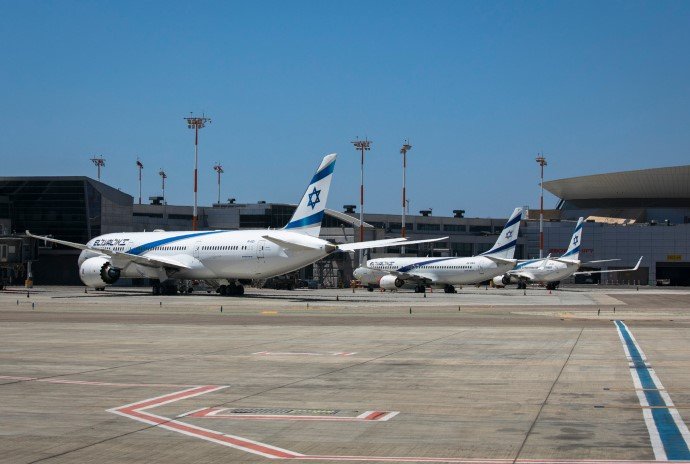The national airline once seen as a symbol of resilience is now drawing fierce criticism for failing Israelis when they needed it most.
El Al may call itself the national carrier, but in the middle of war, it felt more like a ghost airline to thousands of Israelis. As foreign airlines pulled out and the skies above Tel Aviv darkened with missile threats, travelers hoped their own national airline would step up. Instead, many found themselves stuck—abandoned in airports abroad, watching as even El Al’s wings clipped mid-crisis.
The frustration bubbling over is now turning political, economic, and deeply personal.
When the Nation Needed El Al, It Went Missing
It wasn’t supposed to be like this. For decades, El Al carried not just passengers but pride. Through terror threats, hijacking fears, and open conflicts, it prided itself on never halting operations—until it did.
During the recent 12-day Israel-Iran conflict, as Hezbollah and Houthi missiles rained down and commercial airspace briefly shut, most international airlines stopped flying to Ben Gurion Airport. That was expected. But when El Al, too, offered only sporadic service and often failed to get stranded citizens home, tempers flared.
“They left us. Just left us,” said Limor Malka, an Israeli schoolteacher stuck in Rome for five days with two kids. “You’d think El Al would prioritize its own citizens. But they didn’t even answer the phone.”
The Loyalty Illusion: Frequent Flyers Get Nothing Back
Veteran business traveler Sherwin Pomerantz called it “a disgrace,” writing in an opinion column that El Al’s behavior during the crisis shattered whatever goodwill remained.
He wasn’t alone.

Many Israelis have long tolerated El Al’s quirks: the surly check-in counters, the delays, the pricing. It was the price of patriotism. But when the war hit and most airlines canceled operations, it wasn’t unreasonable to expect El Al to step up—not retreat into chaos.
Pomerantz, who once flew nearly two million miles with American Airlines, found himself grounded not by choice, but by a lack of options.
“American stopped flying here, sure. But even El Al was frozen. What’s the point of a national airline if it doesn’t serve you in a national emergency?” he wrote.
El Al’s Patchy Wartime Record
To be fair, El Al did operate some flights—just not enough, and not reliably. Routes were slashed. Aircraft were grounded. Ticket prices surged. And coordination? A total mess.
The airline blamed security, airspace closures, and government restrictions. But critics say other carriers found ways to evacuate dual citizens, humanitarian cases, or at least communicate with their passengers.
Some pointed to the U.S., which deployed chartered aircraft to extract Americans. Others compared it to Lufthansa’s 2020 COVID evacuations or even Ukraine’s wartime logistics. In each case, some kind of system was put in place.
A few key points people repeatedly raised:
-
Many stranded passengers received zero communication from El Al
-
Ticket prices spiked despite the crisis
-
Flight scheduling was inconsistent and unclear
Calls for Government Intervention Are Getting Louder
The backlash hasn’t just stayed in the travel blogs or angry WhatsApp groups. Now, it’s on the desks of lawmakers.
Economists and legal experts say the government has every right to nationalize or at least assert temporary control over a strategically vital industry like aviation, especially during emergencies. It wouldn’t be unprecedented either—Israel’s own government stepped in to rescue El Al during the pandemic with emergency loans and restructuring plans.
There’s growing chatter in Jerusalem about whether El Al should now face a reckoning. Some argue for a partial nationalization. Others want a wartime contingency plan enshrined in law.
“There’s no way this happens again,” said MK Gilad Kariv during a recent committee hearing. “We need legislation that guarantees access to flights for Israelis during conflict. El Al cannot just disappear.”
What’s Left of Public Trust?
Trust is a fragile thing, and El Al’s already bruised reputation may have just taken a nosedive.
The airline has tried to patch things over. Executives promised to review crisis protocols. Some passengers received apologies. But many say it’s too little, too late.
In airport terminals across Europe and the U.S., scenes of desperation played out. Exhausted parents. Young soldiers trying to get back to duty. Elderly tourists running out of medicine. For them, El Al wasn’t just an airline—it was supposed to be home in the sky.
One Tel Aviv-based travel agent, who asked not to be named, said her phone rang for 72 hours straight during the peak of the crisis. “And all I could tell them was, ‘I’m sorry, there’s nothing.’ It was heartbreaking.”
The National Airline by Name, Not by Action
There’s a word Israelis use for this kind of thing: busha—shame. Not operational failure, not business miscalculation—shame.
If an airline calls itself “national,” it needs to act like it. That means flying when it’s hard. Showing up when others don’t. Putting passengers over profit, especially when the country is at war.
Even during relative calm, many now say they’ll think twice before booking El Al again. Not because of the legroom or the coffee. But because when push came to shove, the airline that waved the flag just folded it away.
